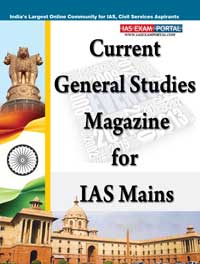Current General Studies Magazine: "Speedy Trials" January 2017

Current General Studies Magazine (January 2017)
General Studies - II "Polity Based Article" (Speedy Trials)
Union Law Minister Ravi Shankar Prasad’s missive to all high court chief justices to “review” cases of undertrials who have been incarcerated for long and to “take suo motu action for their release” is a move in the right direction. A plethora of data highlights the seriousness of the problem. National Crime Records Bureau (NCRB) data, for example, shows that of the over 2.82 lakh people in jail in 2015, about 67 per cent were undertrials. More than 65 per cent of the undertrials spend three months to five years in jail before getting bail. Prasad has called for a national mission to rectify matters. But while there is no reason to doubt the law minister’s sincerity, it remains to be seen if his directives could herald a change in India’s notoriously sluggish justice delivery system.
Calls to rectify matters have been made before. The issue of undertrials found mention during the imbroglio over the appointment of judges last year. But very often the plight of those languishing in jails entered the argument only to make a case for the urgency of the appointment of judges. While there is no doubt that an overburdened judiciary is a major reason for the delay in justice, other shortcomings in the criminal justice system require urgent redressal. Police and prison officials, for example, often fail to fulfill their roles, leading to long delays in trials. Most of the undertrials come from disadvantaged social groups — several surveys have shown that 50-55 per cent of the undertrials are from minority communities and Dalits. NCRB data shows that 70 per cent of them are illiterate. Lack of resources constricts their ability to seek out lawyers and hostile police and prison authorities are rarely of help — despite a 1980 Supreme Court ruling that Article 21 of the Constitution entitles prisoners to a fair and speedy trial as part of their fundamental right to life and liberty.
The understaffed judiciary compounds the problem. Section 167 of the Code of Criminal Procedures mandates that judges can extend a detainee’s custody for a period of 15 days at a time. For that to happen, the detainees have to be produced regularly before the courts. This rarely happens; proceedings don’t take place in time and the undertrials are shuttled from court to court. While issuing his directive to the judges, the law minister asked all “the stakeholders — the government and judiciary — to take collective responsibility” to ensure that that the “institutional mechanism” works “seamlessly to ensure access to justice for the undertrials”. The work should begin in right earnest.

